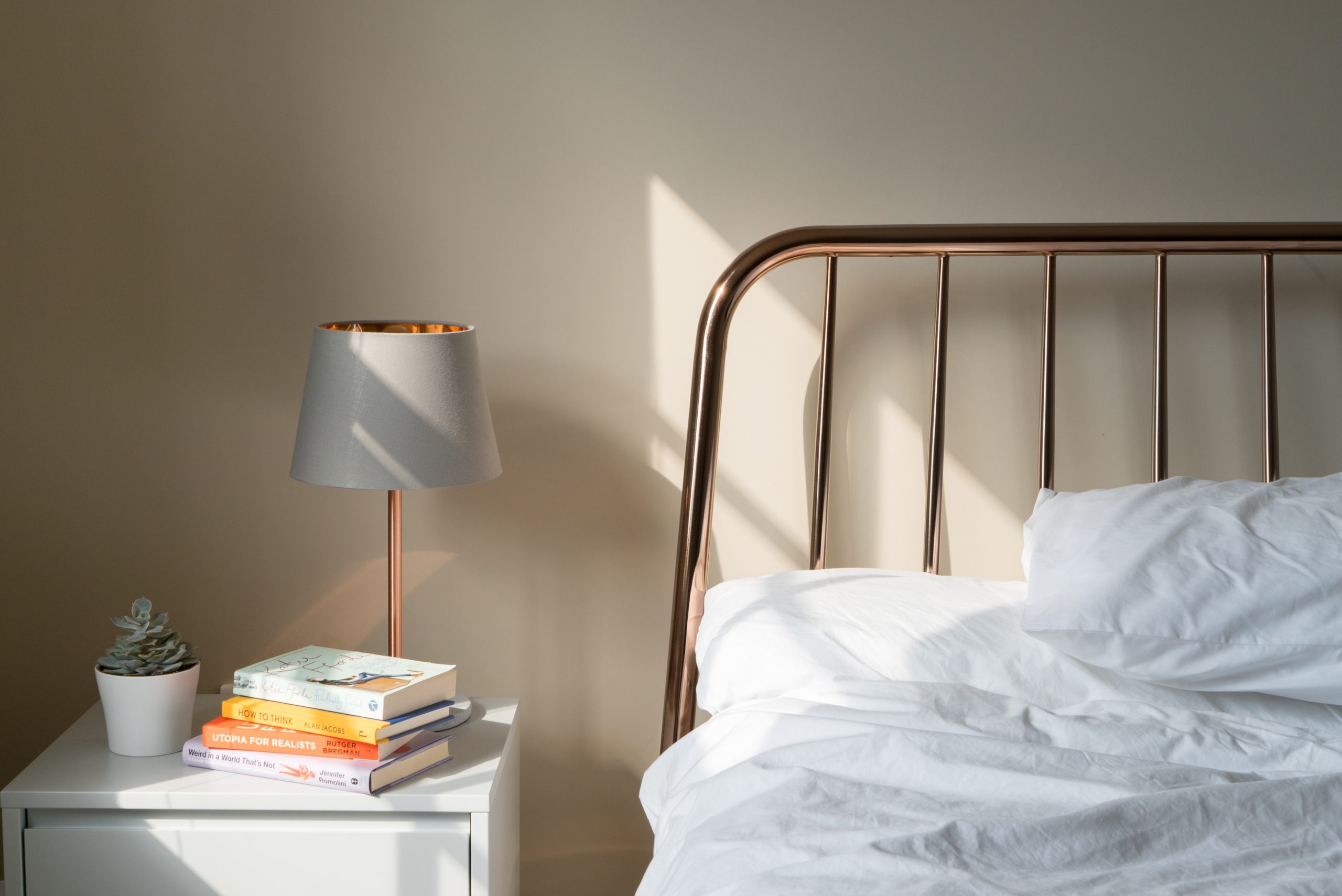

Estimated reading time: 4 minutes
Table of Contents
Each year millions of Americans are plagued by common household allergens like dust mites, mold, or pet dander to the point that it’s affecting their sleep. With their bedding and mattresses full of these common household allergens, a good’s night sleep for these people can be impossible. Here are some changes you can make to combat allergies in your bedroom, find some relief, and get the good night’s sleep you deserve.


One of the easiest ways to combat allergens in your bed is to wash your sheets and pillowcases regularly. Each night your sheets accumulate dead skin cells, the main food source for dust mites. The longer you sleep on the same set of sheets, the more dead skin cells there are to attract more dust mites. Be sure to wash your sheets and pillowcases at least once a week and your blankets every month or two. Wash your sheets in hot water since cold water won’t kill dust mites. Cleaning bed linens with anti-allergen laundry detergent is also helpful if you have allergies.
Another way to combat allergies in your bedroom is to us allergy-free bedding products that can be easily cared for and washed in a machine. Allergy bedding like pillows, covers, she, ts and blankets are better designed to keep dust mites away with fabric tightly woven so nothing gets through the gaps in the fabric. Look for double-stitched cotton and bedding with an antimicrobial finish. Pore size is also important. For an effective barrier between you and the particles from dust mites and other allergens look for pore sizes less than 10 microns. If you’re allergic to pet dander, look for bedding with a pore size that’s as small as 2.8 microns.
With dust mites accumulating in your sheets every week you can imagine how many dust mites accumulate over time in your mattress, especially if it’s ten years old. This is why your journey to allergy relief ideally begins with a new mattress that you protect from the first day of your new purchase. Mattress covers are one way to protect your new mattress. A mattress cover will keep the dust mites out. It will prevent dust mites from ever moving in. Not only does a mattress cover protect your new mattress from dust mites buts, but it can also extend the life of your new mattress.
Another way to protect your mattress and bedding from dust mites is to avoid upholstered headboards. Opt for simple wooden or metal frame headboards instead. Such headboards have fewer crevices where dust mites can hide and are easier to dust and keep clean than headboards upholstered with intricately designed fabrics.
Using a dehumidifier is another way to combat allergens. Dust mites love moisture so the best way to rid your home of dust mites is to use a dehumidifier to lower the humidity.
Finally, you can combat allergens in your bedroom by adjusting the temperature in the room. Keeping a room cold prevents dust mites from reproducing. By turning the air conditioner up in the summer and the heat down in the winter, below 77 degrees Fahrenheit, you’ll take one more step toward stopping dust mites. Just pile on extra blankets if you prefer sleeping in warmer temperatures.
While dust mites, mo,ld, and pet dander are ever present in our homes, making a few simple changes to your mattress and bedding can help you get rid of allergies in your bedroom.
You can also contact us by filling out the form below. Make sure to fill in as many fields as possible so we can respond to you with the most accurate information!
Estimated reading time: 7 minutes TL;DR How To Lower A Tall Mattress & Boxspring If…
Estimated reading time: 8 minutes TL;DR Space-Saving Bed Ideas Moving to a smaller home? The…
Estimated reading time: 9 minutes TL;DR Sleep-Promoting Foods And Their Mechanisms What you eat can…
Sleeping cold can be a real struggle, especially during winter. Waking up shivering or layering…
Estimated reading time: 7 minutes TL;DR How To Make Sure Your Mattress Fits Your New…
Estimated reading time: 7 minutes TL;DR For Signs Your Mattress Is Hurting Your Sleep A…
This website uses cookies.